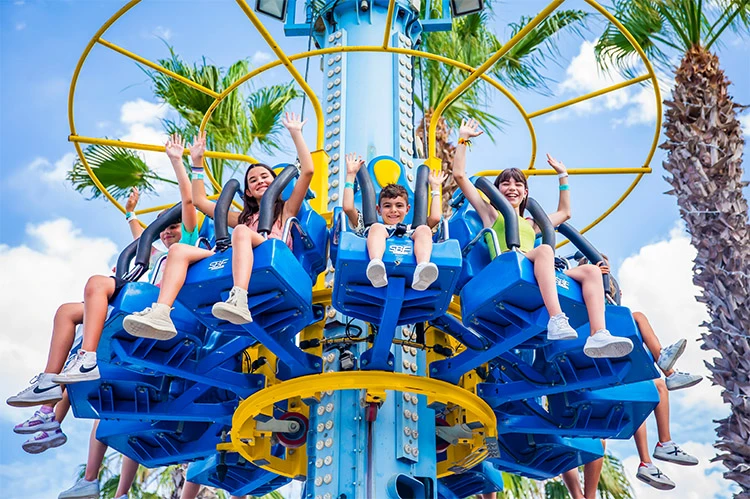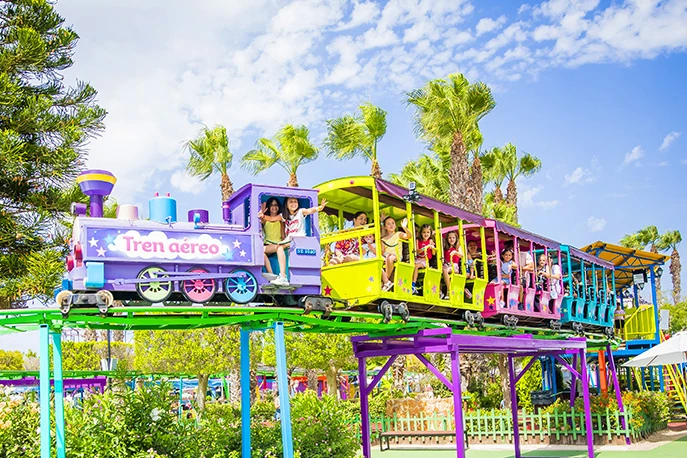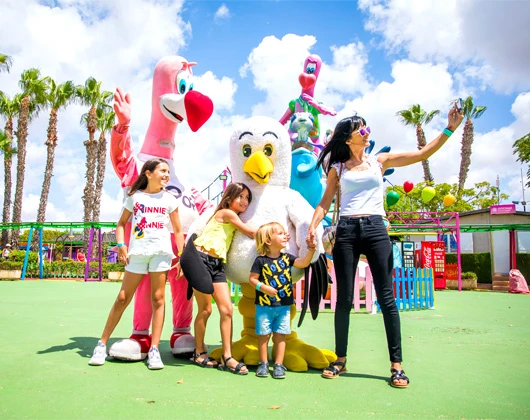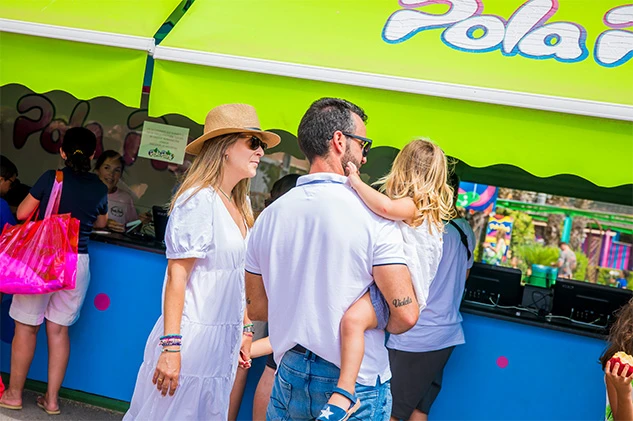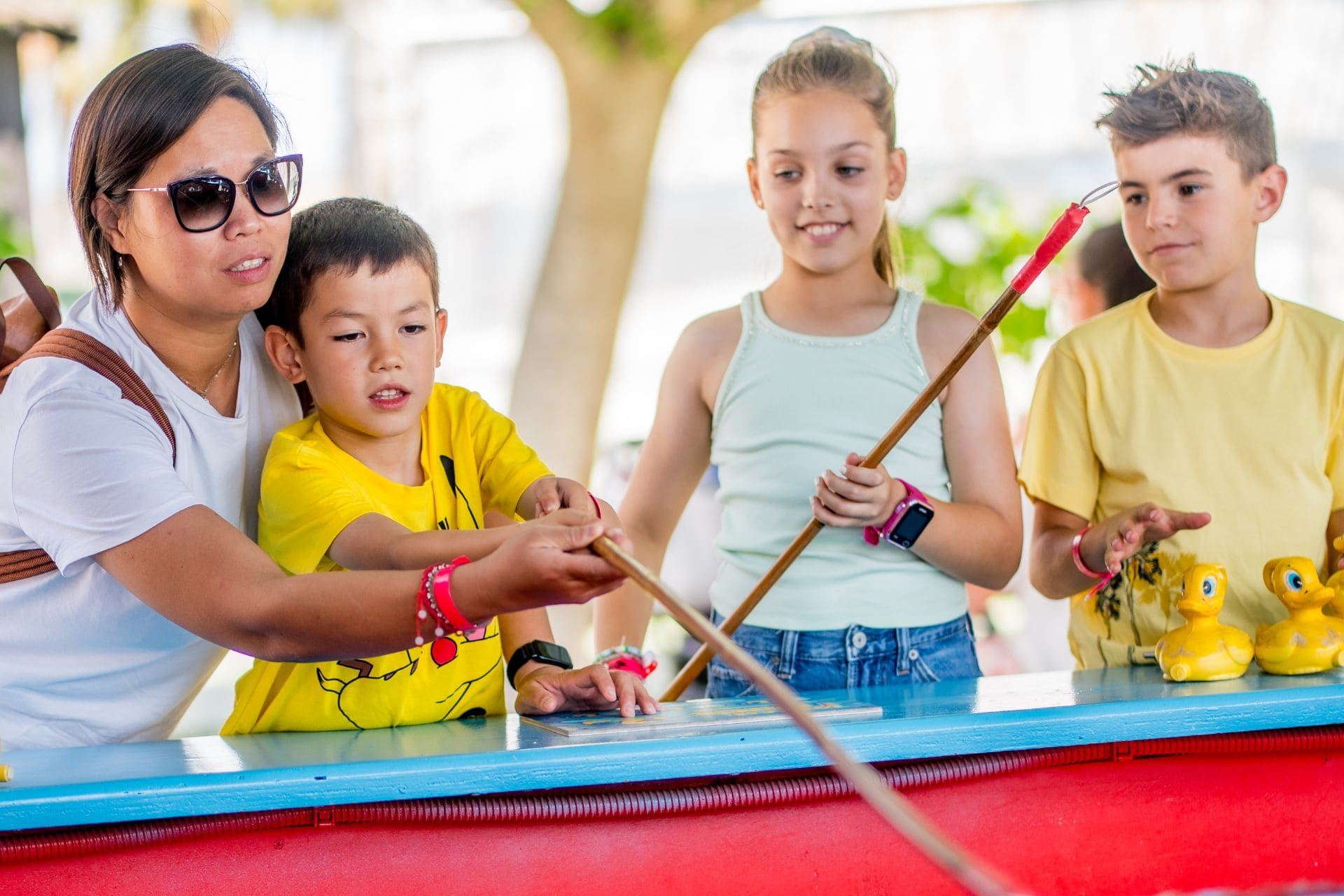What Children Learn in a Theme Park (Without Realising It)
Most kids arrive thinking a theme park is only about burning energy, laughing nonstop and living strong emotions. And we won’t lie: at Pola Park we work hard so that happens. But if you stop for just a second, you’ll see that behind every jump, every scream and every “again!” there is much more.
We’ve welcomed families for years, and if there’s something we’ve learned during this time, it’s that a park like ours also educates. In its own way—no blackboards, no homework. Without anyone noticing, kids take home life lessons.
They Grow on the Inside While They Have Fun
Up to 25 attractions for all ages. From the softest ones for those still discovering the world, to the ones that make the bravest hearts race. But it’s not just variety for entertainment: it’s a constant invitation to self-improvement.
Getting on a trampoline, for example, improves balance, coordination and body awareness. On the American track, surrounded by nets, slides and obstacles, they have to choose routes, calculate jumps, adapt. And while doing it? They laugh, they play, unaware that they’re sharpening their motor skills like nowhere else.
And when they reach that attraction that intimidates them a little, when they stand still watching, hesitating… that’s where the invisible magic happens. They’re evaluating risks, listening to their intuition, respecting their own pace. And that, even if unseen, is emotional training of the highest value.
They Learn to Get Along Without a Manual
Relationships are also learned. And a place like Pola Park makes it easy. Picture a child waiting their turn. It seems like something insignificant, but they’re already practicing patience, respect, empathy.
During school group visits we notice it clearly: they come with teachers or monitors and live a collective adventure where they must organise themselves, make decisions together, coexist outside the classroom. If these experiences interest you, you can take a look at our school activities on our website.
And of course, not everything always goes perfectly. Sometimes there are queues, or a ride closes for a few minutes. Sometimes they don’t dare to try something. And that’s when another lesson appears: frustration is also learned. And learning how to manage it— even more so.
A Boost of Creativity and Curiosity
It may not seem obvious at first, but imagination also flourishes at Pola Park. When they get on the pirate ship or cross the American track, they’re not just playing: they’re heroes, navigators, explorers. They invent worlds. They become the protagonists of their own story.
This type of free and symbolic play is essential for emotional and cognitive development. And in an environment full of visual, sound and movement stimuli like ours, everything multiplies. The mind activates. The story grows.
Not only that—many attractions let them experience physics with their own bodies: the acceleration of a drop, the force in a curve, the impulse of a jump. Things they may learn in class later, but here they feel them.
The Most Important Learning: Sharing Moments as a Family
One of the pillars of Pola Park is that it’s not only children who have fun here. Something deeper is created: that bond born when parents also ride, cheer, laugh or simply accompany. And believe us, that leaves a mark.
We’ve seen families visit every summer. Kids who came at five and now bring their cousins. Those shared memories don’t just make us proud—they’re part of many childhoods. And that is great learning too. The good kind.
That’s why we always recommend preparing the visit in advance: check the attractions, see minimum heights, decide what you’ll eat. Everything is in our “Plan Your Visit” section so the day flows and you only focus on enjoying.
In Summary: Playing, Jumping, Laughing… and Learning Without Knowing It
Yes, Pola Park is a theme park. Of course it is. But it’s also many other things:
- A space to explore the body and its abilities
- A place where emotions and relationships grow slowly
- A small laboratory of everyday decisions
- A stage where lasting memories are created
Every child who comes looking for fun leaves with something more. Without knowing it. But they take it with them: confidence, skills, values, experiences that last forever.
